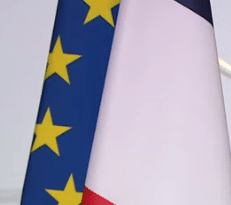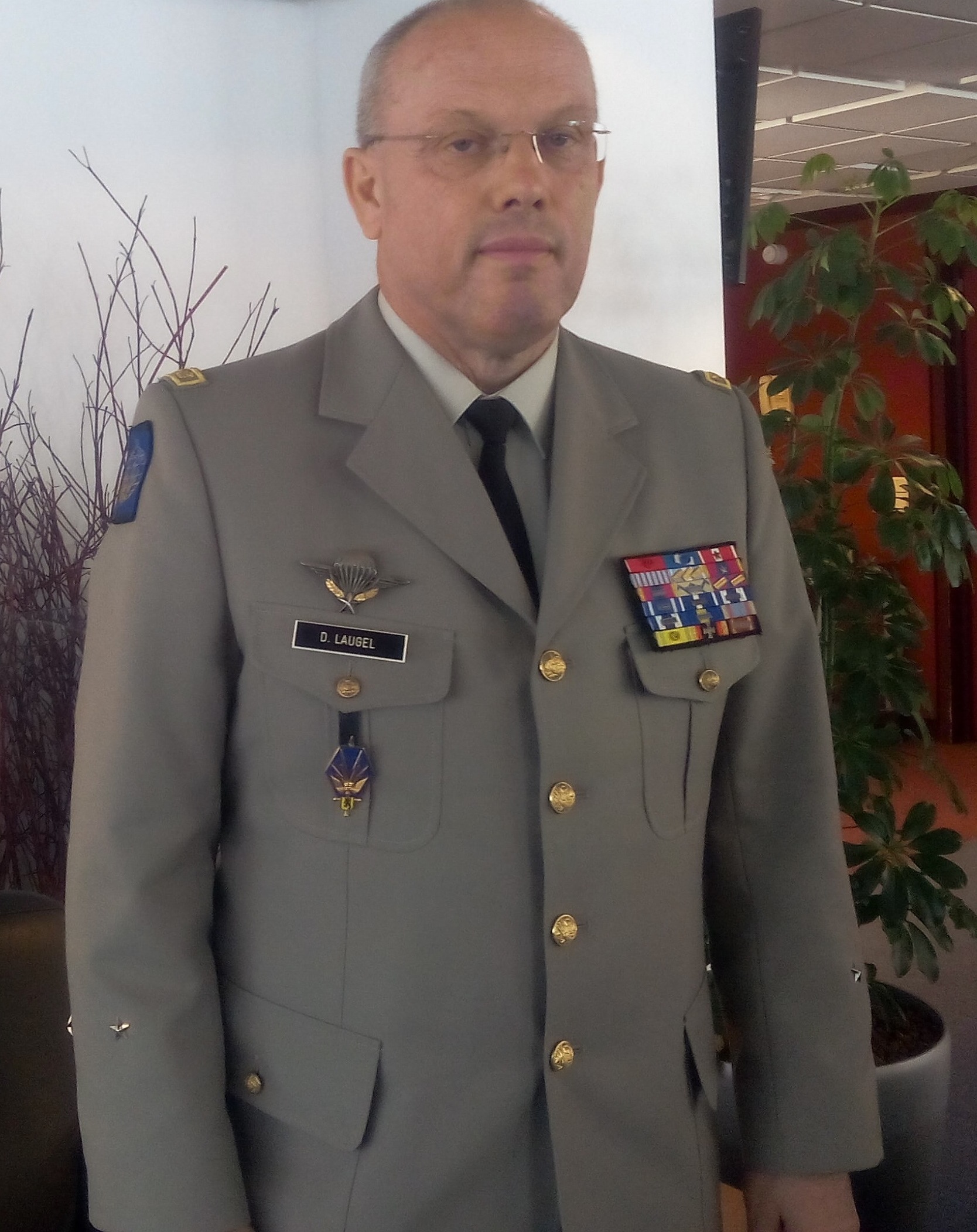mali. An operation prepared for a long time… (questions and answers)
 (BRUSSELS2) I had planned to do this paper for a few days. And had not yet found the time to gather the various information collected. Fortunately, the RTBF had the good idea to invite me to Info Week on Friday in excellent company — JP Stroobants (Le Monde) and Charline Vanhoenacker (the RTBF correspondent in Paris) — to review this week under the leadership of Arnaud Ruyssen. And his questions spurred me on... Because I think we all ask ourselves them...
(BRUSSELS2) I had planned to do this paper for a few days. And had not yet found the time to gather the various information collected. Fortunately, the RTBF had the good idea to invite me to Info Week on Friday in excellent company — JP Stroobants (Le Monde) and Charline Vanhoenacker (the RTBF correspondent in Paris) — to review this week under the leadership of Arnaud Ruyssen. And his questions spurred me on... Because I think we all ask ourselves them...
A sudden or long-prepared operation?
The operation in Mali officially launched on January 11 may have seemed sudden to more than one observer. And everyone was surprised by the French reaction, which was not expected to be so quick and so significant. But we can say that this operation is anything but improvised on a military, diplomatic or police level. For several weeks, the CPCO (Centre for Planning and Conduct of Operations) has been on alert, intensively preparing a response. For several months, the various movements on the spot had been under close surveillance. Each information being reported, cut and confirmed.
And the first assessment, which was a few hundred people, weakly armed, was quickly revised upwards. " We find ourselves in the presence of several thousand combatants, well armed an officer told B2. If we cannot qualify the movement as homogeneous, " there is at least an organization and coordination to go into battle in a much more structured way than the impression transcribed publicly, with logistics depots and fuel relays. The southward movement of these forces has thus been deciphered. It can be explained by the " willingness of rebels and Islamists to intervene before Malian forces are restructured. The announcement of the imminence of the European and then African deployment forced them to take action », Explains a specialist in the file.
And the moment to strike the French was then chosen strategically, when the military and political moment were ideal. As explained by JY Le Drian, the French MinDéf from January 12. Intelligence " made it possible to detect the preparations for a major offensive, organized and coordinated by Ansar Eddine, AQIM and MUJAO, along two axes, towards the cities of Mopti and Diabali”. The request for Malian aid and the French intervention were then obvious and could not arouse further discussion...
Algeria regains its role?
Algeria's rallying to the military operation is not unexpected either. A major effort has been made based on conviction. Not a week has passed in the country without an important visit. The visit of François Hollande, the French president, on December 19 and 20, was the most visible moment for the French. Especially since it was accompanied by the signing of the defense agreement - a request from the Algerians. But she wasn't the only one. Several French visits followed one another.
The Americans were very present. Hillary Clinton traveled on October 29. But not only her. In recent months, hardly a week has gone by without an American official, from the State Department (Deputy Secretary Bill Burns was in Algiers at the beginning of December) or from Defense, stopping off in the country. The Spaniards and Europeans got into it too. The failure of the mediation attempt undertaken by Algeria finally convinced it that it was necessary to move on.
Europe did nothing? Europe provides what it knows how to do: logistics and transport
It's easy to scoff at European uncertainty about the region. European soldiers on the ground would certainly have had some symbolic meaning. But in terms of military effectiveness, at least in the short term, I have more than one doubt. Nothing beats combat in the desert, the naval infantry (colonial), the foreign legion and other seasoned French troops haphazardly from Chad, Djibouti or the Ivory Coast. And, to consolidate the French army, a few hundred Chadians are well worth (2000 in all), in the ardor of the fight and the knowledge of the places, a few thousand Europeans 🙂
The Europeans are, in fact, supplying the French with what they lack: transport planes (there are about ten mobilised), means of communication and observation, means of intelligence (especially for the British. But there would not be surprising if the Germans also provided assistance, having been often present in Mali). Without this logistics, the French deployment would be slowed down and the "Serval" operation would not have lasted 7 days. The Malian Minister of Foreign Affairs, T. Coulibaly, reminded Brussels of an intangible law of conflict: “ war is not only soldiers, it is also logistics. This is the whole meaning of the appeal of the French ministers, a little harsh at times. The Europeans must quickly release all their available means, and not just one or two planes. What surprised Paris is the weak commitment in terms of air transport, especially on the side of London and Berlin. The support is stronger on the side of the French-speaking countries, as proof the Canadian commitment is equivalent to that of the British and the Belgian commitment equivalent to that of the Germans.
A new Afghanistan? Clear differences
Comparing with Afghanistan is indeed attractive - on the logic of the intervention. But there are quite a few notable differences.
- The terrain is certainly immense and desert. But it does not have the complexity that the Afghan horizon has, with valleys that can be steepened and mountains.
- It is a terrain that the French army knows well.
- The operation has the support of the local army, the local population who can guide it, direct it, as well as the diaspora present in France (it is as important as the rest.
- There is a certain sharing of language, culture and customs. Everything that is Malian is not totally unknown to the French.
- Neighboring states support the operation or at least are neutral. The closure of land borders by Algeria is a crucial point as much as the opening of its airspace. The country does not thus play the dual role that Pakistan has played and still plays on the Afghan scene. The big unknown is still Mauritania.
Will the operation last? The risk of dispersion
Nobody can bet on the duration of the operation. French Ministers of Defense and Foreign Affairs say so. " We will continue these actions as long as necessary explains Minister Le Drian (January 12). We can be reasonably optimistic. The military operation can be quite quick in itself: a few weeks, a few months perhaps in the first phase. Especially if the African deployment is rapid. The most difficult thing will then be to bring peace. On the one hand, it will be necessary to seize terrorists and other criminals and then try them. The main danger of the operation is therefore not in itself getting bogged down. The French do not have vocation to remain eternally in Mali. It is up to Africans to lead this action on the front line” explains Laurent Fabius, the Minister of Foreign Affairs (January 17 in Brussels).
The main risk is the scatter effect as a European official told me. The rebels and terrorists are likely to stray into the wild, and it's going to be a lot difficult to catch them. Hence the importance of the destruction of the various logistics depots, of opening political dialogue, of bringing the rebels to their senses, and of having good cooperation with neighboring countries to avoid the reproduction of the boiler Libyan ... Otherwise the problems will be found tomorrow ... in Mauritania for example.
Does the taking of hostages in Algeria have a link with the Malian affair? Libya's grave mistake
The claim of the terrorist group intervening on the gas site of In Amenas seems like opportunism. The hostage-taking seems more linked to the Libyan question and the absence of well-monitored borders. We can say there that there is a direct effect of the international intervention in Libya. The 800 km border between Algeria and Libya was part of a gentleman's agreement monitored only by Libya. When you know the Libyan regime of Gaddafi, that's enough. The Algerians therefore had only a weak surveillance of these points. Some points did not even have a border post or quick access on the Algerian side. The collapse of the regime took Algeria by surprise. And the border has become a real sieve. We find ourselves faced with a serious error, the most serious in my opinion of the intervention in Libya, the lack of surveillance of the surrounding borders.
Mali is to be rebuilt? The hardest
We have often spoken of the international intervention in Libya as a triggering factor for the Malian crisis. That is not exactly correct. It is rather an aggravating factor. " He accelerated " crisis. Because Mali was above all a quasi-failed state. With an army in full decomposition, a pseudo-democracy, a north abandoned to traffic in all directions. The fruit was ripe for rebels and Islamists to seize. From now on, we will have to start again on new bases.
We must also ask ourselves the question how we were able to let such a country sink, benefiting from significant European aid (around 90 million euros per year). This deserves more than a question mark in my opinion. But a real investigation, even a parliamentary commission of inquiry.
(Nicolas Gros-Verheyde)


